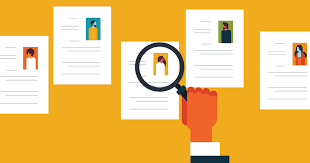Introduction
Checking references is an essential part of the hiring process. It allows employers to gain valuable insights into a candidate's qualifications, work ethic, and suitability for a particular role. Traditionally, reference checks were conducted over the phone or in-person. However, with the advancement of technology, email has become a popular and convenient method for requesting and conducting reference checks. In this comprehensive guide, we will explore the benefits of using email to check a reference, provide effective strategies for conducting reference checks via email, and address common questions employers may have. By the end of this article, you'll have the knowledge and tools to conduct thorough and insightful reference checks through email.
The Benefits of Email Reference Checks
1. Convenience: Email reference checks offer convenience for both employers and references. It allows flexibility in terms of timing and eliminates the need for scheduling phone calls or in-person meetings. References can respond to the email at their convenience, making it easier to gather the necessary information.
2. Documentation: Email reference checks provide a documented record of the conversation. This can be helpful for future reference, ensuring that the information provided by the reference is accurate and can be easily referred to during the hiring decision-making process.
3. Thoughtful Responses: Email allows references to carefully consider their responses and provide more detailed information about the candidate's qualifications, skills, and experience. They can take the time to provide thoughtful and well-rounded feedback, leading to more comprehensive reference checks.
Effective Strategies for Checking References via Email
1. Requesting a Reference via Email
When requesting a reference via email, it's important to be clear and professional. Here are some key points to consider:
Use a polite and respectful tone in your email, addressing the reference by their appropriate title.
Clearly state the purpose of the email and provide context by mentioning the position the candidate has applied for.
Include relevant information about the candidate, such as their name, qualifications, and the relationship they had with the reference.
Request the reference's feedback and ask specific questions that will help you assess the candidate's suitability for the role.
Express gratitude for their time and willingness to provide a reference.
2. Structuring the Reference Check Email
When structuring the reference check email, consider the following:
Start with a brief introduction, reminding the reference of their relationship with the candidate and the purpose of the email.
Include a set of specific questions or areas of inquiry that you would like the reference to address. This can include questions about the candidate's work ethic, strengths and weaknesses, ability to work in a team, and overall performance.
Provide guidance on the preferred format for their response. You can ask them to respond directly to the email or provide their feedback in a separate document.
Set a deadline for their response and offer your contact information in case they have any questions or require further clarification.
3. Follow-Up and Gratitude
After receiving the reference's response, it's important to follow up and express gratitude for their time and valuable input. Consider sending a thank-you email to acknowledge their effort and contribution to the hiring process. This helps maintain positive relationships with references and ensures their willingness to provide references in the future.
Common Questions about Email Reference Checks
Q: Is it acceptable to conduct all reference checks via email?
A: While email reference checks offer many benefits, it's important to consider the specific circumstances and preferences of both the employer and the references. Some references may prefer phone calls or in-person meetings. It's best to be flexible and accommodate the preferences of the references, whenever possible.
Q: How should I handle references who do not respond to my email?
A: If a reference does not respond to your initial email, it's appropriate to send a polite follow-up email as a gentle reminder. If you still do not receive a response, you may consider reaching out via phone or exploring alternative references.
Q: What should I do if a reference provides a negative or unenthusiastic response?
A: Negative or unenthusiastic responses should be taken into consideration along with other feedback and factors in the hiring process. It's important to have a balanced approach and consider multiple perspectives. If concerns arise from the reference check, it may be worth discussing them further with the candidate or seeking additional references.
Conclusion
Email reference checks are a valuable tool for gathering insights and evaluating candidates during the hiring process. By following the effective strategies outlined in this guide, you can conduct thorough and insightful reference checks via email. Remember to approach each reference with professionalism, respect their preferences, and express gratitude for their time and input. With a well-executed email reference check process, you can make informed hiring decisions and build a strong team of qualified individuals.



